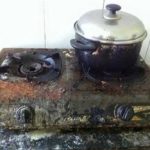Recently, a serious explosion incident occurred in Yen Giao district, Tam Ha city, Ha Bac province, China, causing more than 20 casualties. Specifically, at around 8 a.m. (local time), at a fried chicken restaurant, a loud explosion was suddenly heard, accompanied by a large fire. The scene quickly became engulfed in flames and thick smoke.
According to some witnesses near the area where the incident occurred, the glass doors of nearby buildings were also affected and shattered. Cars on the road were severely damaged. “While I was working, I suddenly heard a loud bang. I ran outside and saw the nearby building was on fire. The entire building was practically destroyed. There were many vehicles on the nearby roads,” recounted a witness.
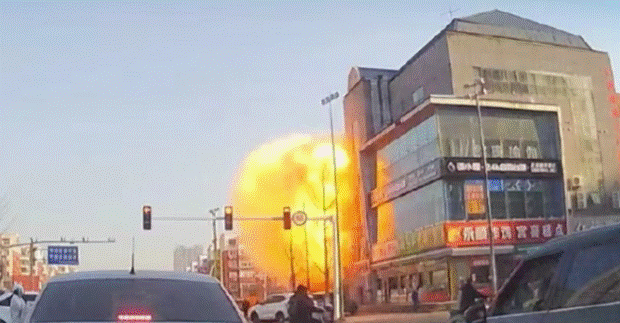
Moment of the fire outbreak (CCTV Image – The Paper)
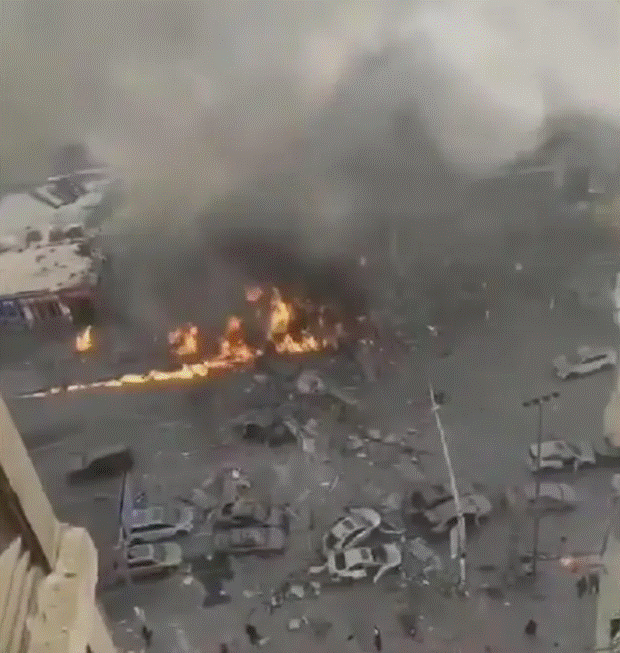
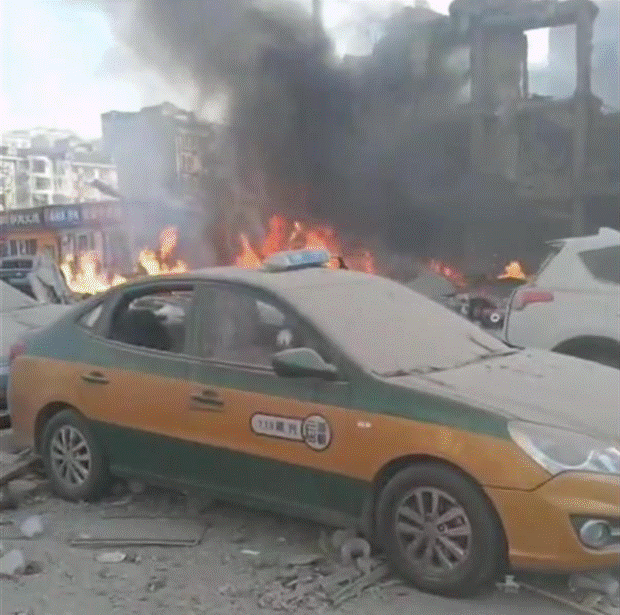
Surrounding scene of the explosion site (CCTV Image – The Paper)
Upon receiving reports from local residents, emergency response teams, firefighters, medical personnel, and other relevant departments quickly arrived at the scene. According to The Paper, as of October 10, the explosion and fire incident had resulted in 1 fatality and 22 injuries. The initial cause of the incident was suspected to be a common type of gas cylinder used in restaurants and households. It was a gas cylinder that leaked gas.
In reality, gas leaks in households or restaurants are not uncommon. Gas itself cannot cause explosions. However, when it leaks and mixes with oxygen in the air, and there is an ignition source such as turning on a light switch, fan, phone, or metal contact between high-heeled shoes and the floor, there is a high risk of explosion. Additionally, it can cause gas poisoning, have a negative impact on the environment and living space, and result in wastage of gas and financial loss for homeowners.
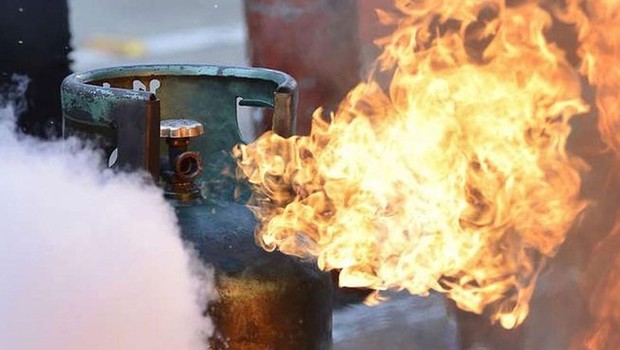
Gas leaks can pose a significant risk of explosion (Illustration)
Identifying signs of gas leaks
Due to the negative impact of gas leaks, users should pay attention to daily signs in order to detect and handle them promptly. The following are some common signs recommended by the Health Department of cities:
1. Unusual gas odor
The first and most easily recognizable sign that a household gas cylinder has a gas leak is the appearance of an unusual gas odor in the kitchen area, specifically or the entire kitchen area in general. Unlike the lingering smell after using a gas stove, the smell of a gas leak will be stronger and sometimes unpleasant to the nose.
This is the first sign that indicates a gas leak is becoming more serious. At this point, users need to intervene, check, and promptly replace the gas hose or gas cylinder.
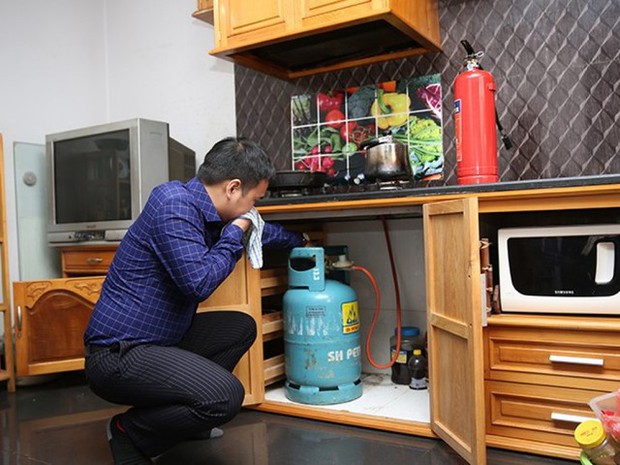
Illustration
2. Unusual flame
Normally, a stable flame from a gas cylinder or gas stove will usually have a blue color and burn evenly on the burners. However, when the flame shows unusual signs such as flickering, not igniting, or changing to red color, it can also be an indication that the gas cylinder is leaking or experiencing problems.
3. Unusual sounds from the gas stove or gas cylinder
In addition to the unusual odor in the kitchen, unusual sounds coming from the gas stove or gas cylinder, whether in use or not, should also be of concern. It is possible that the gas cylinder has a leak or the gas is obstructed in the gas pipe. These factors can also pose a dangerous risk of explosions.
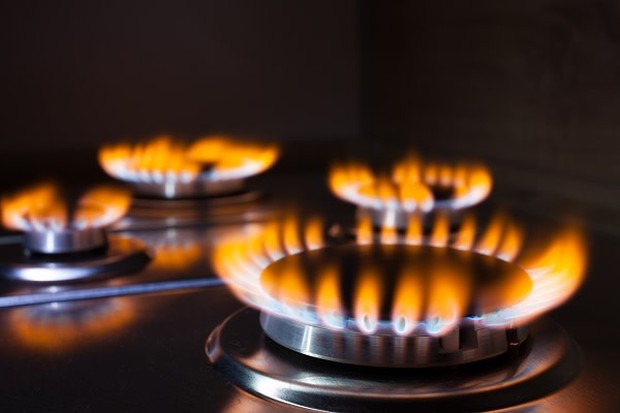
The flame can also indicate a gas cylinder leak (Illustration)
4. Accumulation of snow or ice on gas cylinders
The fourth and highly serious sign warning of a gas cylinder leak is the presence of snow or ice around the mouth of the cylinder, gas valve, or connecting pipes. The significant accumulation of gas poses a high risk of explosion.
Other causes of gas cylinder explosions
In addition to gas leaks, there are other causes that can lead to gas cylinder explosions during use, including:
– Damaged gas stove or gas hose connection
– Faulty gas valve gasket or loose valve
– Insecure connections between gas hoses, gas cylinders, and stoves
– Users not properly closing the gas valve after use
– Using an old or heavily damaged gas cylinder without timely repair or replacement
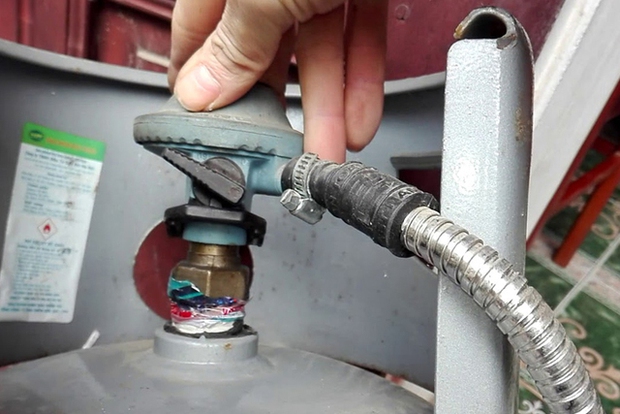
Closing the gas valve is a crucial step when using a gas stove (Illustration)
Throughout the usage period, users should strictly follow the instructions provided by distributors and installers of gas cylinders and stoves. When they detect any abnormal signs, they should not continue using them and should not attempt to fix the issue themselves. It is best to have professional repairers with experience check the equipment.
Source: Đời Sống Pháp Luật


























